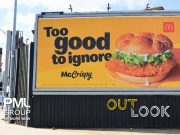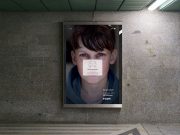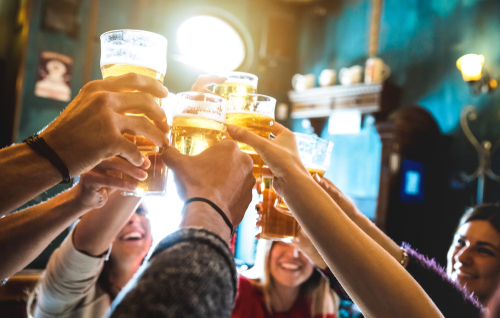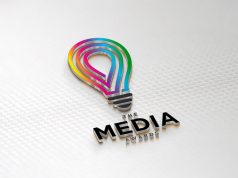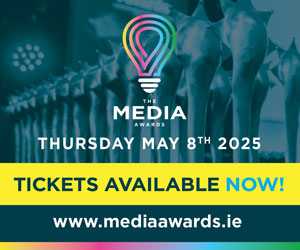
As we enter the post pandemic era, Margaret Gilsenan and Aoife Murphy of Boys+Girls examine the findings of new research carried out by the agency into whether Ireland and the Irish have genuinely changed forever or are the differences just superficial?
Understanding Ireland and creating brand campaigns that reflect back the Ireland we are is something Boys + Girls have always prided itself on. Work like the “Byebyebye’ ad for Aldi, Škoda’s ‘Made for Ireland’ and the Three Ireland Euro #MakeHistory sponsorship platform are campaigns built on deep cultural insight.
In partnership with Martha Fanning Research, Boys + Girls Forensics (our data and research arm) undertook a qualitative research project to get under the skin of how Ireland is thinking today. Has the psyche of the nation really been altered forever or have we just undergone a few superficial ‘tweakments’?
The research was anchored in the big everyday topics that take up the most time in our lives like work, leisure and culture.
We explored these themes with five focus groups across Ireland’s four provinces with participants from the ages of 25 to 55 from all types of backgrounds.
Here is a taster.
By now it sounds clichéd to write that we’re ‘going through a period of change’. Covid, prolonged inflation and the fact that the world is literally on fire have had and are continuing to have a deep impact on Irish people’s attitudes and perceptions of the world around them.
So, what kind of Ireland do we live in today? It’s a big question and one that’s vital for brands to understand. Societal disruption generally requires decades to embed so while it seems unlikely that we’ve changed dramatically in a few short years, pandemics are also once in a century events.
On our work life
For many their work lives have changed hugely in recent years.
Gone is the job for life mentality that existed decades ago. Even older generations now acknowledge that most people will go through multiple careers in their lives. In fact, it’s seen as desirable. A freeing revelation that means we don’t have to commit to one path for life – that flexibility is now a built-in feature of our work selves.
But tied to this optimism is a sense of diminishing loyalty to employers, especially large-scale ones. This is reinforced by some of the recent large lay-offs in the tech sector believed to be ‘proof’ that they can drop you quickly and therefore don’t care. That growing cynicism is an opportunity for Irish employers of all levels to step up and offer workplaces that actively support employees in return for their loyalty.
Finally, there’s a real sense that hybrid working is here to stay – whether employers like it or not. The emphasis is on hybrid here, rather than work from home only. Most people recognise that a better balance is achieved with some in person/office days.
But there is evidence of a divide emerging between those who have the option of working from home and those who don’t (those in health, construction and hospitality) for the latter, there’s a real sense of actually ‘being in work’ all day. They see (with envy) the flexibility of office-based workers and can often feel short-changed that their roles lack that benefit.
On our leisure time
The pub and alcohol is no longer the centre of Irish life. Even for the younger cohort alcohol is playing a less prominent role. Generation Z are drinking 20% less than millennials, and they drink less than their previous generation[1].
This means that the role of our 7,000 pubs and the shape of nightlife and Irish towns in years to come is up for debate.
Perhaps life has taken over our ability to nip off to the pub for a drink. People reported that the busyness and overscheduling of life is back. This is especially true for households with children. Despite promising to never return to full calendars and to have more down time post Covid, life is back at full speed.
But there are some positive outcomes from Covid with people reporting a renewed focus on life’s simple pleasures. Everyday things like having coffee with friends, being outdoors, making time for (enjoyable) exercise and appreciating local parks and walks are all listed as things people actively make time for and look forward to.
On our Culture
Finally we looked at our view on culture. Culture is a big buzzword in brand marketing. Brands are often dazzled by microculture groups but understanding culture at large is necessary in mapping audience behaviour.
When asked to consider Ireland’s culture, our respondents’ gut reaction was to default to talking about the pubs, craic agus ceol. Culture is so ingrained it can be difficult to talk about but when you remove these ‘cliches’ of Irish culture as discussion points and probe a little deeper, GAA, traditional Irish music and dancing are all reported as sources of pride.
There’s a growing interest and pride in these familiar pillars of Irishness. In 2022 GAA finished top of the list, ahead of soccer and rugby, as Ireland’s most popular sport and[2] Gaeilge is the most popular language in Ireland on the global language learning app, Duolingo[3]. And we see new evidence of pride in other aspects of Irish culture, in the growing following of Irish dancing groups like the Gardiner Brothers on social media.
What bonds all of these activities together is the sense of community you get from taking part. Belonging to a community has many obvious benefits but the connection to others and their knowledge (what’s going on down the road with yer one) carries huge appeal.
Our research showed that people are very proud of the accessibility of these activities in our culture. At most levels they’re very open to everyone. Anyone can join a GAA club or take part in a class to improve their Irish. That inclusivity is what makes the community aspect even stronger.
If you’re interested in the themes in this research or would like to know more about the findings please send an email to info@boysandgirls.ie, we’d love to chat.
Margaret Gilsenan is Chief Strategy Officer and Aoife Murphy is Executive Planning Director with Boys+Girls.
[1] Berenberg Research, 2018
[2] Teneo Sport and Sponsorship Index 2022.”
[3] As ‘An Gaeilge’ rises in popularity, standard of spoken Irish is falling, Irish Examiner, Dec 2022






